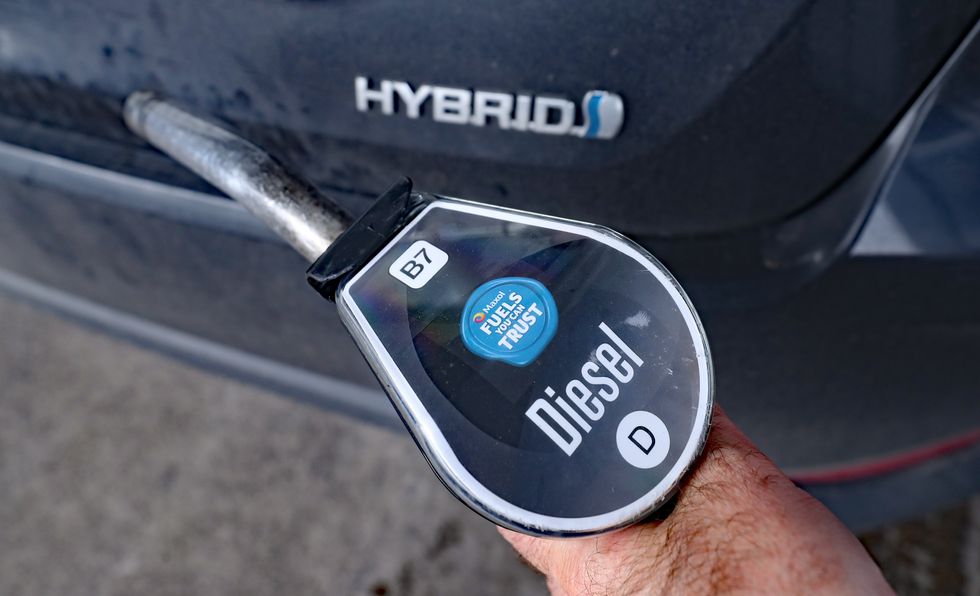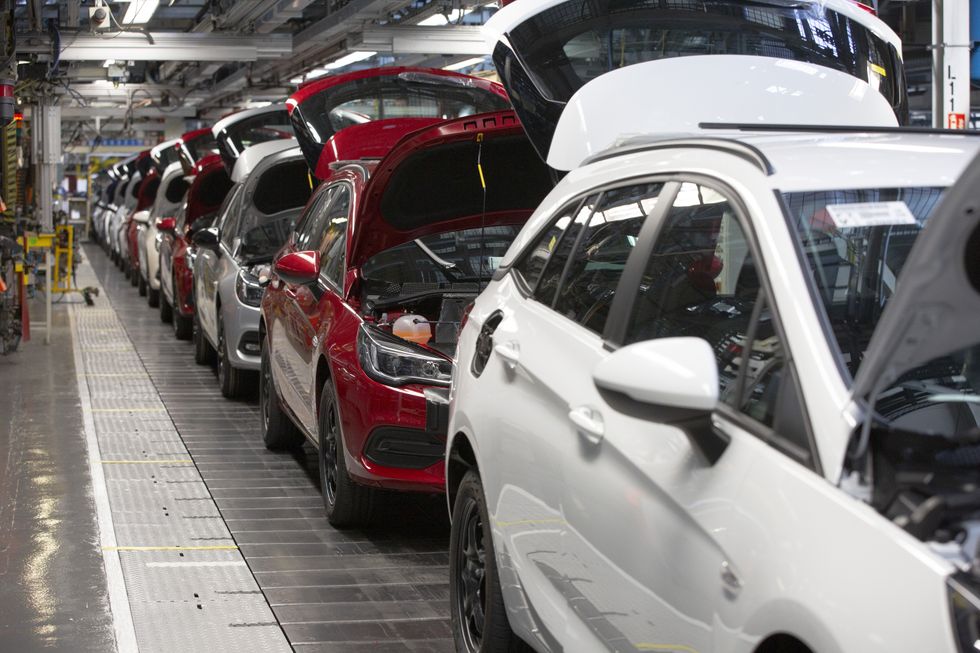Petrol and diesel cars will remain on UK roads ‘for years to come’ as drivers refuse to follow 2035 ban

59 per cent will be keeping their petrol and diesel vehicles for as long as they can
Don't Miss
Most Read
Latest
More than two out of four drivers refuse to believe petrol and diesel cars will meet the 2035 ban deadline with the support over the measure waning.
It comes after a report discovered that over half of Britons don’t think that the Government’s ban on the sale of new petrol and diesel cars in 2035 will be met.
The ban which is expected to take effect from 2035, would see the sale of new petrol and diesel cars prohibited although second-hand vehicles with combustion engines will still be available.
A survey found that 59 per cent will be keeping their petrol and diesel vehicles for as long as they can with support over electric cars falling.
Do you have a story you'd like to share? Get in touch by emailing motoring@gbnews.uk
 Petrol and diesel drivers would prefer a hybrid car | PA
Petrol and diesel drivers would prefer a hybrid car | PAIn addition, 50 per cent of people in the survey felt the environmental impact of scrapping a car just because it operates with fossil fuels would be too high while 40 per cent believe that electric vehicles don’t fit into their lifestyles.
A total of 54 per cent think they would like to hear more about alternative options rather than focusing only on electric vehicles.
David Richardson, business development director at Coryton, said: “Whether we meet the deadline on new car and van sales or not, one thing is certain, we’re going to have ICE vehicles on our roads for years to come. What we need is a strategy that addresses this.’
“Clearly, electric vehicles offer a lot of benefits and should form part of our environmental strategy. However, as a company that specialises in sustainable fuel, we urge the government to embrace the opportunities that our category, and others, present. We don’t have to pit one solution against another – we should be utilising all of the technologies.”
Under the Conservative Government, one of its original pledges was to ban new sales of petrol and diesel cars by 2030, however market volatility combined with manufacturers needing more time resulted in the ban being delayed until 2030.
However, one of the key points in Labour’s manifesto before they took to power was to reinstate the 2030 date, although the Government has yet to share any updates on this.
The Sustain survey reported that 27 per cent of people plan to buy a new ICE car just before the deadline, meaning that petrol and diesel vehicles could be seen on UK roads for at least another two decades.
Commenting on the 2035 deadline, Andrew Willson, CEO at Coryton said at the time: “The delay on the ban of petrol and diesel engines doesn’t have to mean we take our foot off the pedal on our climate goals.”
He added: “This is the time to start investing in ramping up the production and introduction of sustainable fuel components into mainstream fuels, which could start making a tangible difference far quicker than the proposed adoption of a single solution approach.”
The issue with the current conversation is that “we’re demonising ICE engines rather than the fossil fuel we use to power them,” Willson explained.
He noted: “The vehicles we own, or buy in the run-up to 2035, will be on our roads for decades to come. So, by demonising ICE we’re neglecting more sustainable solutions that could be delivering progress on our net zero goals today.
“Sustainable fuels are readily available, compatible with our current fleet and could help reduce our greenhouse gas emissions by more than 80 per cent compared to fossil fuels.”
LATEST DEVELOPMENTS:
 The 2030 deadline to ban new petrol and diesel cars could be reinstated soon | GETTY
The 2030 deadline to ban new petrol and diesel cars could be reinstated soon | GETTYUnder the UK's Zero Emission Vehicle mandate, it instructs manufacturers to have a minimum of 22 per cent of total sales come from electric vehicles by the end of the year. This target will increase to 80 per cent in 2030 and 100 per cent in 2035.










